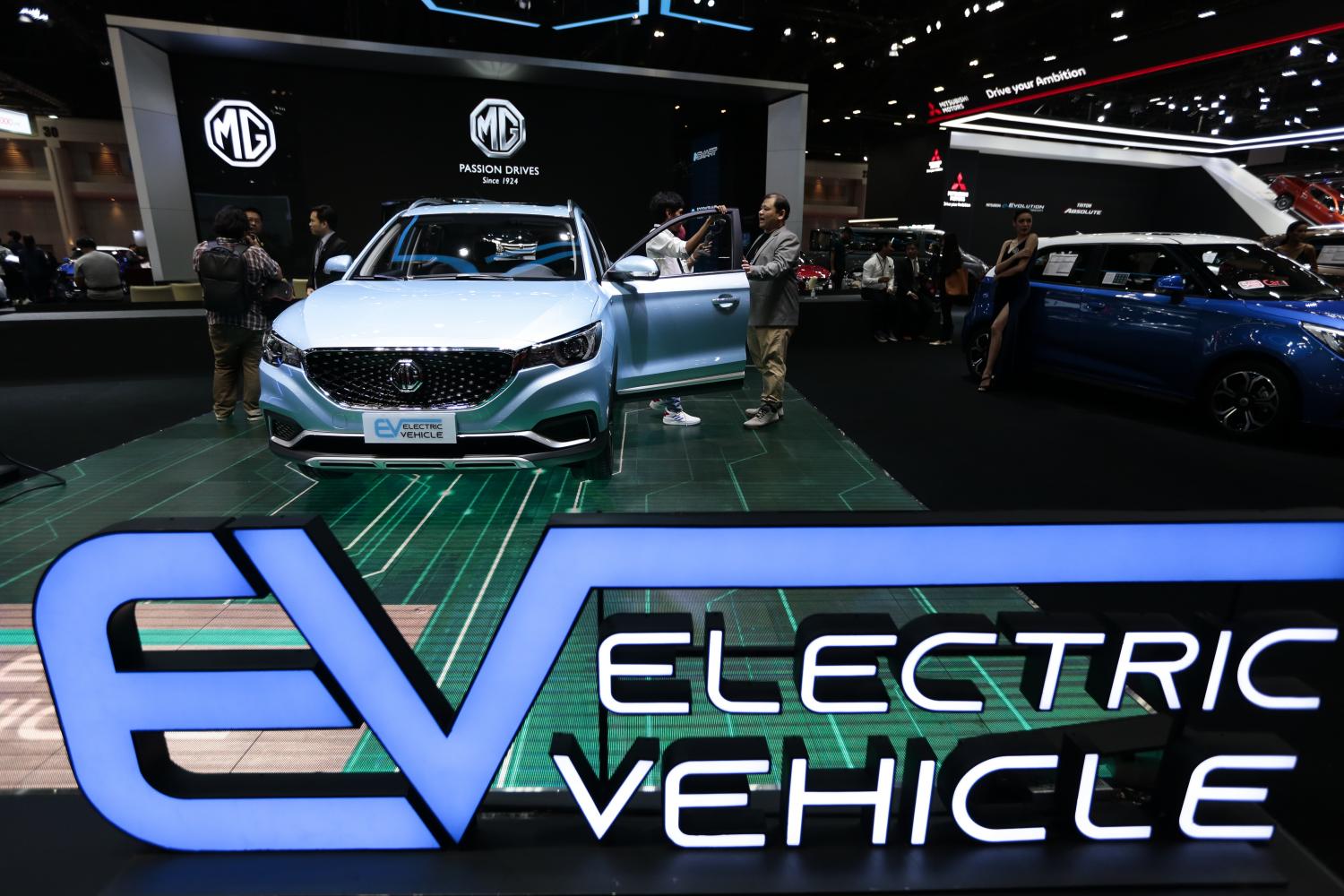
Finance Minister Arkhom Termpittayapaisith has ordered the Excise Department to study the excise tax structure on electric vehicles (EV) to promote industry development and lower the price of EVs.
Speaking after visiting the Excise Department on Friday, Mr Arkhom said the government has lowered the excise tax on EVs, but he wants the department to reconsider which components of EVs deserve improved tax reductions to make them more enticing to consumers.
Under the current excise tax structure, EVs are tax-exempt from Jan 1, 2020, to Dec 31, 2022, for car makers granted Board of Investment (BoI) privileges, with the rates levied at 2% after 2022. Manufacturers that did not receive incentives are charged 8% tax.
The BoI on Nov 3 approved fresh privileges for EVs following the expiration of the previous package in 2018.
The fresh package includes a three-year tax holiday for manufacturers of plug-in hybrid vehicles and a maximum eight-year corporate income tax waiver for battery EV producers.
It aims to facilitate the 2030 EV roadmap drafted by the Industry Ministry, which calls for EVs to account for 30% of total annual car production or 750,000 units out of a projected 2.5 million, by 2030.
The new package covers all major aspects of the supply chain, focusing on battery electric vehicles (BEVs), local production of significant parts and commercial vehicles of all sizes, including buses, trucks, motorcycles, tricycles and ships. The previous package focused largely on cars and passenger vehicles.
Mr Arkhom also wants the Excise Department to study the excise tax structure on electronic appliances, aiming to promote environmental friendliness and power saving.
Fresh incentives may be offered to manufacturers who can produce products that save energy above the existing criteria, while tax penalties will be implemented for those that do not meet the criteria.
Electronic appliances can be taxed by the Excise Department, but it has only levied tax on air conditioners thus far. Residential air conditioners are not taxed, while those for cars are charged 15%.
He said the department is studying levies on salty food to encourage people to eat healthier.
Lavaron Sangsnit, director-general at the Excise Department, said the No.5 power-saving label is the main energy-saving standard of the Electricity Generating Authority of Thailand, but current technology is more advanced and electronic appliances could save more than the No.5 criteria. This new "star" sign system has three stars indicating the highest level of power savings.